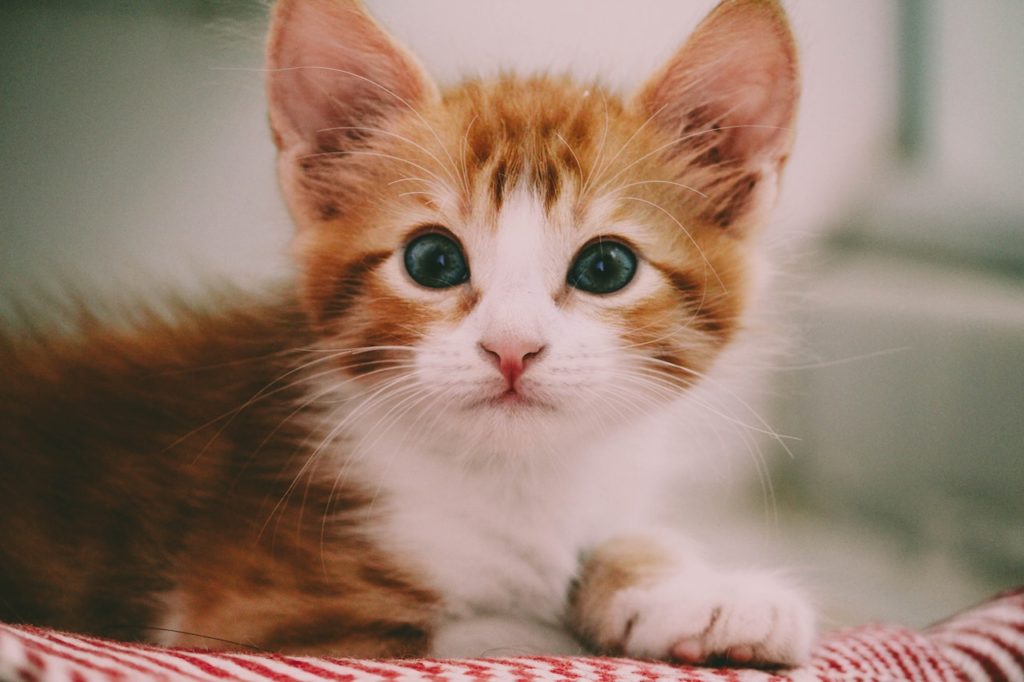Kitten Care Timeline

Ensure your kitten get’s the best start in life
If you’re getting a kitten there are some key events and appointments in their early life that are essential for healthy development.
We’ve outlined these below so that you can ensure your new kitten gets the best possible start in life. Our kitten best Gold Start plans will ensure your new kitten will have all of the support and preventative healthcare steps covered.
// Kitten Plans //
Our Kitten Head Start Plans
Kitten - Head Start
£55
Does your Kitten need their first injection?
If so you may be interested in our Head Start which includes:
- 1st & 2nd Core Vaccinations
- Leukaemia Vaccination
- Worm and flea treatment’
- 4 weeks Free Insurance*
- 10% off Neutering
*applicable to pets under six months of age, subject to a veterinary examination confirming they are in good health.
Kitten - Head Start Lite
£40
Has your Kitten already had their first injection?
If so you may be interested in our Head Start Lite which includes:
- Full Health Check & Second Vaccination
- Worm and flea treatment
- 4 weeks Free Insurance*
- 10% off Neutering
*applicable to pets under six months of age, subject to a veterinary examination confirming they are in good health.
// honest, tailored care //
Your Kitten Care Timeline
To help you stay organised and keep on top of your kittens health in their early life, we’ve put together this easy to follow kitten care timeline. It covers all of the key appointments you’ll need to book, as well as some of the ket events in their life. Remember, you can book your kitten’s health consultation at Knutsford Vets where our team will be on hand to ensure they stay healthy in the early months.
More Kitten Care Advice From Knutsford Vets
Welcoming a new kitten into the family is a very exciting time for everyone involved. Before you adopt your kitten it is important to ensure that you do plenty of research into ownership and if you are getting a pedigree kitten it is important to research what the character of the breed is and any health conditions they may suffer from.
To help you get to grips with kitten ownership and ensure your new pet gets off to the best start in life, we’ve put together this helpful guide. Find out more about the range of services on offer from your team here at Knutsford Vets in order for you to raise a strong and healthy cat.
At what age can a kitten come into a new home?
It is really important that a kitten stays with their mother for a minimum of 8 – 9 weeks, although some people will wait until after their first vaccinations. During the first few weeks of life mum is feeding the kitten and ensuring the milk she gives primes the kitten with antibodies to protect the kitten from some infections they can obtain from the environment.
The kittens will learn to eat solid foods and develop certain behaviours such as grooming, play and other social behaviours whilst with their mother. Leaving home too early can impact on a cat’s wellbeing and behaviours for the rest of their lives.
Choosing a healthy kitten and spotting a healthy litter
When selecting a kitten it is really important to ensure that you can see the mother and kittens together interacting. It is advisable to visit a litter before they are ready to come home so that you can see all of the kittens together, there is no reason why you shouldn’t be able to meet the mother.
During this visit, you will be able to see how well the mother and kittens are cared for and what kind of start they have had in life. It is important to assess some of the following things:
- What condition is the mother in – does she look well cared for, bare in mind mothers can lose weight whilst suckling kittens but they should not look too underweight.
- Look at where the kittens are being raised and how they are being socialised – a Kitten needs to learn the way of the world and this starts at a young age, early exposure to the sights and sounds of the world is important.
- Watch the kittens interact together, they often demonstrate some of their character traits at this young age, the boisterous kitten is likely to be confident in a new home, the quietest might suit a calm home.
- Be cautious of picking the smallest kitten, frequently the smallest kitten can develop health problems.
What worming and flea treatments has my kitten already had?
Kittens should be wormed from a young age as there is potential for the mother to transfer worms at birth, if the kittens have not been wormed regularly they can fail to gain weight, develop chronic diarrhoea as well as develop long term complications.
Kittens should be wormed at 3 weeks old, this is usually repeated every 2 weeks until 8 weeks old then monthly until 6 months old.
Kittens also need flea prevention treatments, especially if the mother is going outside, it is important to discuss this with your vet as some adult products are not suitable for young cats.
Bringing your Kitten home
Although bringing your kitten home is a very exciting time for you and your family, it can be very daunting for the kitten leaving familiar surroundings.
It is not uncommon for new kittens to find the perfect hiding place under the sofa or bed and remain there except for seeking food for some time. It is often a good idea to restrict them to one room in the house where they are able to be kept safely with access to everything they need, this can allow them to gradually explore their new home and gain confidence.
Make sure the new home is safe, kittens can squeeze in small holes and will often chew plants and other things in the environment. It is important to provide them with access to food and water and these bowls should be separate from each other. Often kittens are already litter trained when they come into a new home, keep the type of cat litter the same as what they are used to. It is important the litter tray is completely separate from the feeding and drinking area.
Cats and kittens have a natural urge to scratch on upright surfaces, it is important they are allowed to do this, but if you do not provide a scratching post and encourage them to use it they will naturally seek their own area which is often the sofa, chairs or curtains.
Their first kitten health check
Your vet will take plenty of time to get to know your kitten and for your kitten to build confidence with them. A full clinical diagnostic will be performed to check your kitten is fit and healthy and to discuss the best care for them. This is advised to be carried out at the earliest possible time following your rehoming.
If your kitten is due vaccinations, these will also be administered at this time and we may also prescribe your kittens wormer and flea treatment if appropriate. You can register your new kitten with us online and book your appointment using our booking portal.
Alternatively, please call our reception team on 01565 337 999.
